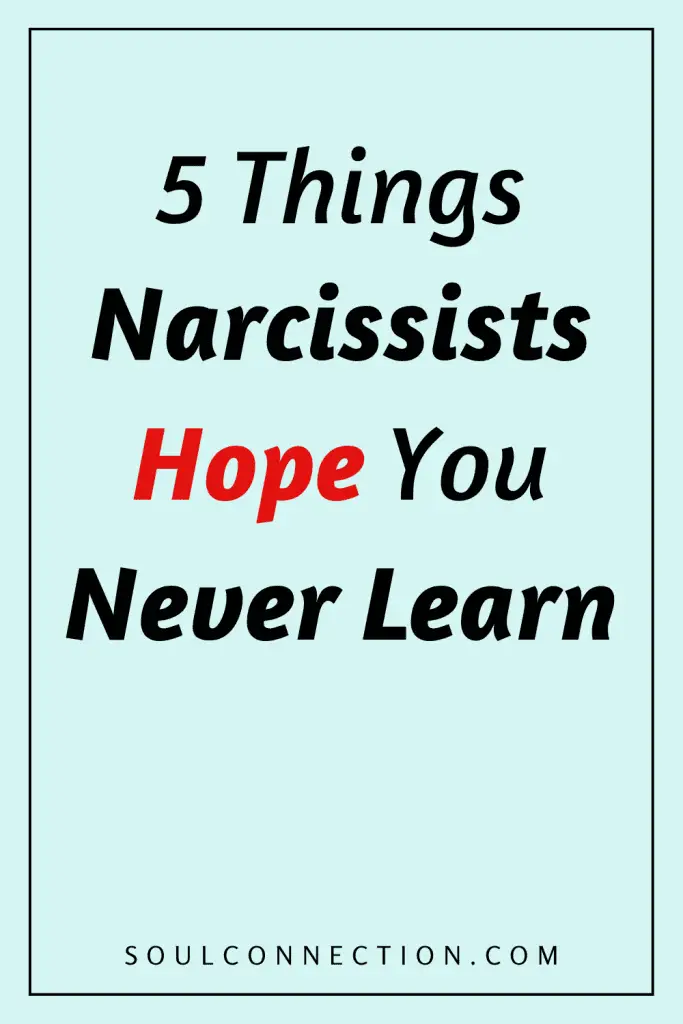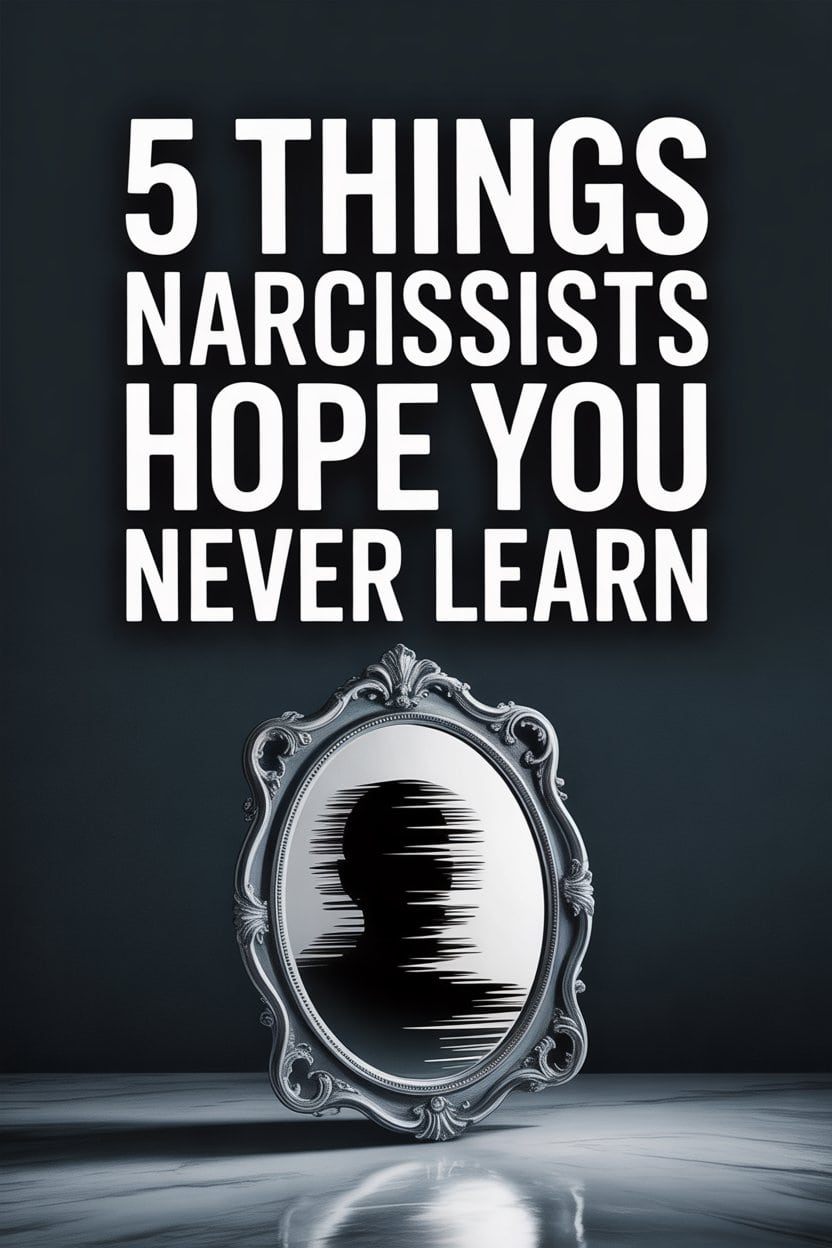Ever get that prickly feeling something is off, but you just can’t put your finger on it? Welcome to life with a narcissist, where the only thing more twisted than reality is their sense of self-importance.
Grab your cuppa (or something stronger) and let’s shine a light on five secrets narcissists desperately hope stay buried.
1. Narcissists Fear Exposure More Than Rejection
Narcissists aren’t just afraid of being disliked. Dislike is a tiny itch compared to their real nightmare: being unmasked. Their carefully curated image is their lifeline, and they guard it like a dragon guards gold.
Every story they tell, every humblebrag, every subtle put-down of your achievements—it all exists to reinforce the illusion that they’re flawless.
Start seeing the little cracks and calling out inconsistencies, and you’ll notice the mask slipping. That charming confidence can turn into icy rage or pitiful victimhood faster than you can say “gaslighting.”
They bank on your silence, your self-doubt, and your tendency to give the benefit of the doubt. Catching them in a lie? That’s their version of stepping on a Lego barefoot.
If you ever wondered why criticism—no matter how gentle—ignites an explosion, this is it. Facing the truth means losing control, and narcissists are allergic to that.
2. Your Boundaries Are Kryptonite
Ever set a limit with a narcissist and suddenly feel like you’re the villain in a soap opera? Boundaries are their mortal enemy.
The mere mention of the word can lead to a dramatic performance worthy of an Oscar. “How dare you not answer my texts immediately? I guess you just don’t care about this relationship.”
The thing is, boundaries are the antidote to the narcissist’s control. They operate best when you’re unsure of your own needs, always putting them first, forever justifying your own boundaries away because you don’t want to rock the boat.
The moment you say, “No, that doesn’t work for me,” is the moment you start to reclaim your power.
You’ll notice pushback—maybe pleading, maybe sulking, maybe a guilt trip longer than your last holiday. Stay firm. Boundaries are how you teach people, narcissist or not, how you want to be treated.
Spoiler: The ones who benefit from your lack of boundaries will protest the loudest.
3. The Apology Act Is Just That—An Act
Ever received a “Sorry you feel that way” from a narcissist and wondered why you felt worse afterwards? That’s no accident. True accountability is rarer than a unicorn in their world.
Apologies, if they appear at all, come with strings attached or a side of blame. “I’m sorry you’re so sensitive.” Or, if you’re lucky, “I’m sorry, but if you hadn’t…”
These pseudo-apologies keep the cycle spinning. Why? Because if they can convince you that feelings are the problem (yours, not theirs), then they never have to change.
Accepting their “apology” feels like progress, but in reality, it’s just a pit stop on the never-ending guilt trip.
Don’t hold your breath for a heartfelt, no-excuses apology. The real victory lies in seeing this performance for what it is: a way to reset the power dynamic, not a sincere attempt to mend anything.
4. Emotional Manipulation Is Their Love Language
Ever felt like your emotions get twisted into balloon animals after a conversation? Narcissists are fluent in manipulation. Flattery, guilt trips, silent treatment, sudden affection—these are their tools of the trade.
You’re always on your toes, wondering which version of them you’ll get.
The classic move is to keep you guessing about where you stand. One day you’re the best thing since sliced bread; the next, you’re being blamed for their stubbed toe, global warming, and the coffee machine breaking. All in one morning.
Mixed messages leave you second-guessing yourself, apologizing when you’ve done nothing wrong, and working harder for their affection. It’s emotional limbo, and the narcissist is gleefully holding the stick.
Recognizing these patterns is the first step off their merry-go-round.
5. You Actually Hold the Power
Here’s the kicker: Narcissists spend so much energy convincing you that you’re powerless, but the real secret is that you’re holding the cards the whole time.
Every time you question their logic, set a boundary, or seek outside support, you chip away at their control.
They thrive when you believe their version of events, ignore your instincts, and keep their secrets. The moment you start to trust your gut, reach out to friends, or (gasp) say no, you take the wheel back.
The narcissist’s worst nightmare isn’t being left alone. It’s being left powerless.
Small steps count. Whether it’s keeping a journal, talking to a therapist, or just venting to a mate over chips, every act of self-advocacy is a win.
How to Spot (and Stop) the Cycle Tonight
Ready for a reality check that doesn’t require years of therapy or a dramatic intervention? Here’s what you can do:
- Keep a written record of conversations, especially those that twist your words or make you feel bonkers. It’s shocking how quickly you’ll spot the patterns.
- Tell someone you trust. Secrets are a narcissist’s security blanket. Sunlight is the best disinfectant.
- Practice saying “No” without a guilt-induced explanation. “No” is a complete sentence, promise.
- Notice how you feel after interactions. Do you feel lighter or like you’ve run a marathon in a swamp? That’s a clue.
- Set one tiny boundary tonight—just one. Maybe it’s not responding to that late-night guilt text, or maybe it’s turning your phone off at dinner. Start somewhere.
The truth is, narcissists can only run the show if you stick to their script. Rewrite yours, and watch the drama fizzle.
Freedom Looks Good on You
No need to become the narcissist whisperer—just someone who knows their worth and isn’t afraid to protect it. Narcissists hope you stay in the dark, but you’re officially onto them now.
Take care of yourself, trust your instincts, and keep your sense of humour handy. It’s the best armour you’ve got.


